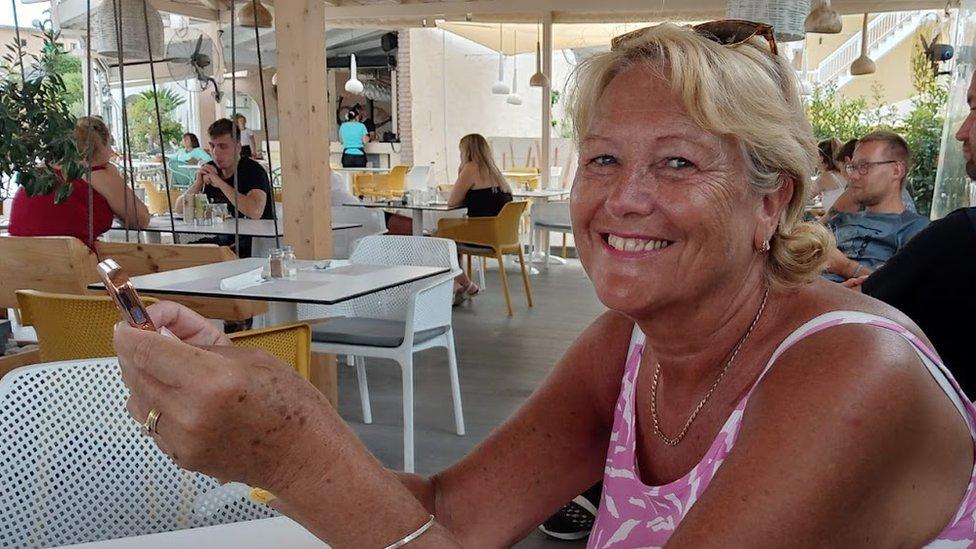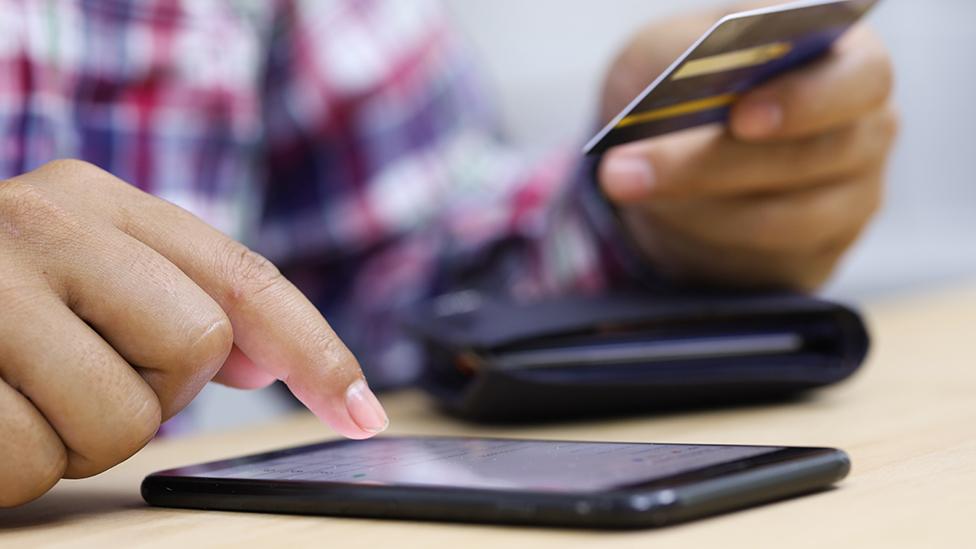Channel Islands' woman loses £3,000 in 'Hi mum' scam
- Published

HSBC Channel Islands confirmed the case remained under investigation
A woman has been scammed out of more than £3,000 after fraudsters pretended to be her son.
Jan, which is not her real name, spoke to BBC Money Box about the texts she received from someone she thought was her son asking for help.
She said despite the digital warnings, she sent the sum to help her son out of an alleged "difficult situation".
Her bank, HSBC Channel Islands, said customer protection was a priority and the case remained under investigation.
'Just so gutted'
More than 1,000 people reported having had a total of £1.3m stolen from them in 2022 from criminals using "Hi mum" or "Hi dad" scam messages, Action Fraud confirmed.
The first text, sent in December, said "Hey mum I am texting you on my friends phone as my phone is broken".
Jan said she believed the text as her actual son's phone was faulty, and was told a bill needed to be paid the same day.
She sent £3,190 to the person she thought was her son, and then sent a screenshot of the transaction to her actual son.
Her son contacted her in confusion, which was when she realised she had been scammed.
"I was just so gutted, I was so, so, so upset that someone could do this to me."

Jan said her bank HSBC could not return the funds as she had authorised the payment
'Helping my son'
Jan said she had contacted her bank after the scam had occurred, but was told they could not help her as she had authorised the payment.
"It's not really fair, I do feel that [although] I did authorise it, there were warnings but because I wanted to help my son, I was all intent on helping my son and that was the only thing that mattered to me," she said.
A spokesperson for HSBC Channel Islands said protecting customers from scams "is a priority".
"We fully investigate every case and this fraud is still under investigation."
Jan said she had returned to work to "replace that money" she had been scammed out of.
"I have been working purposely, I did some night work to try and replace that money, it is a lot of money to me," she said.
Guernsey Trading Standards Officer Agnes Miller said people who think they are being scammed should ring the actual number of the family member being impersonated.
She said: "They never introduce themselves by name, which is the first sign that this is not a genuine message, and they also always refer to some difficult situation that they find themselves in.
"You can verify by contacting them by different means, for example if they contact you on WhatsApp, then why not send them an email or contact them via Messenger or text."
Related topics
- Published17 December 2022

- Published29 June 2021
